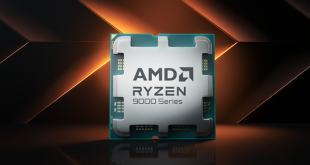Thanks to the recent addition of Intel's Core i7-3820 to its LGA2011 (Sandy Bridge-E) lineup, the cost of ownership for this platform has dropped by a good chunk. What many of us were wanting to know however is how well this entry level quad core LGA2011 processor can overclock. Does the cheaper price tag also equate to lower overclocking headroom? – An overclocking lad of TeamRussia shares his experience with the new chip which in part suggests great bang for your buck!
We say in part, because two of the processor's four cores were disabled as well as Hyperthreading (perhaps somewhat defeating the purpose). Alas, an impressive 5.66GHz was still achieved despite the chip being only “limited unlocked” (there are only a few BClk multiplier options above stock).
As you can see via the CPU-Z screenshot above, a BClk speed of 131.74MHz was used with a 43x multiplier and core voltage of 1.6V. The rest of the hardware used included ASUS' Rampage IV Extreme motherboard along with some GeIL DDR3-1600 memory (occupying all four channels) and of course, extreme cooling measures.
KitGuru says: Had all four cores + Hyperthreading been left alone, this result would be much more exciting. Nonetheless, the result shows potential for this little $300 entry level Sandy-E processor to handle jumping over the 5GHz barrier without breaking much of a sweat.
 KitGuru KitGuru.net – Tech News | Hardware News | Hardware Reviews | IOS | Mobile | Gaming | Graphics Cards
KitGuru KitGuru.net – Tech News | Hardware News | Hardware Reviews | IOS | Mobile | Gaming | Graphics Cards




Overclocking with disabled cores doesn’t do anything for me. A high overclock with all the cores and even hyperthreading is more impressive and useful. I don’t see the point in crippling a processor just to overclock it.